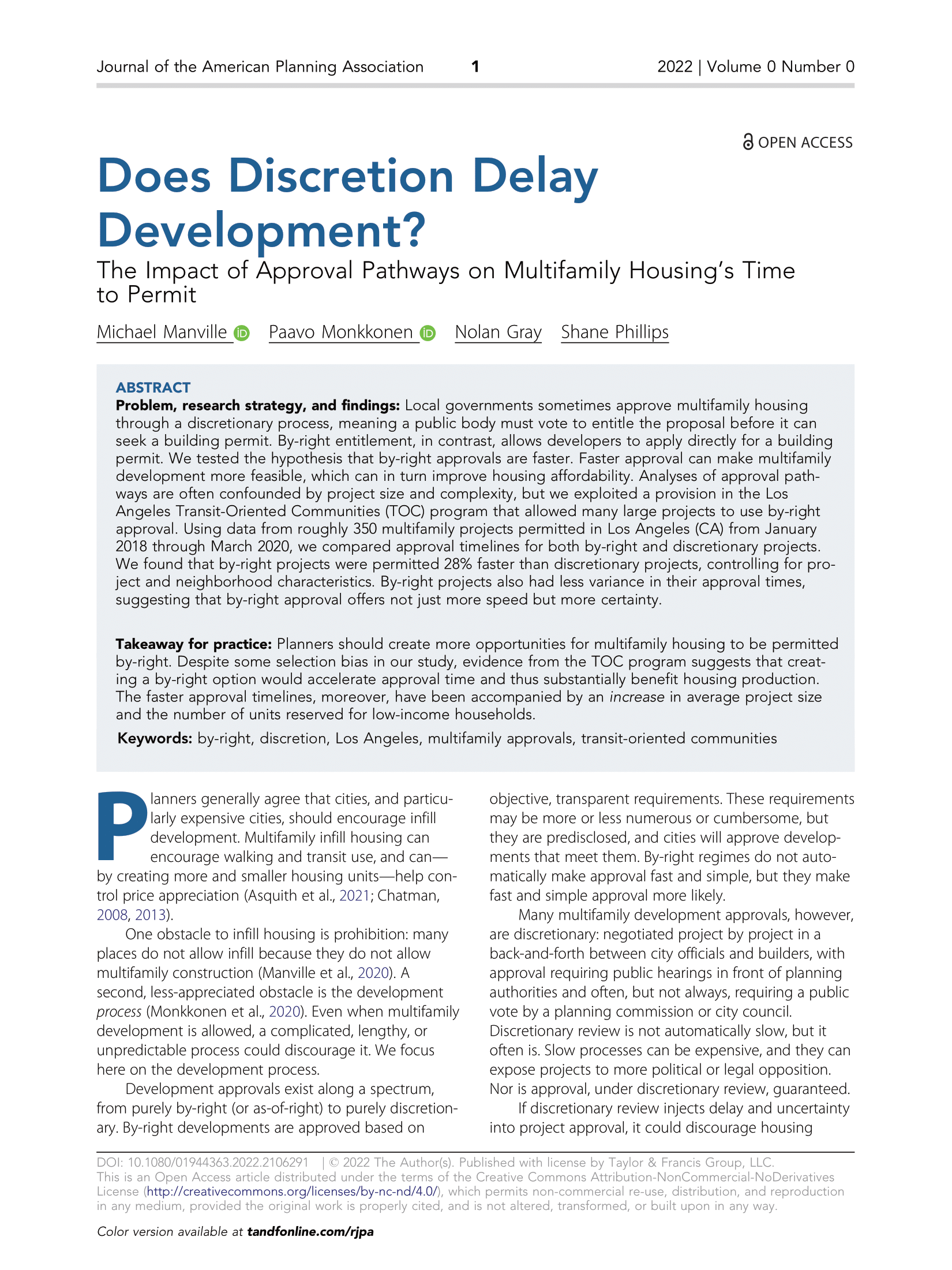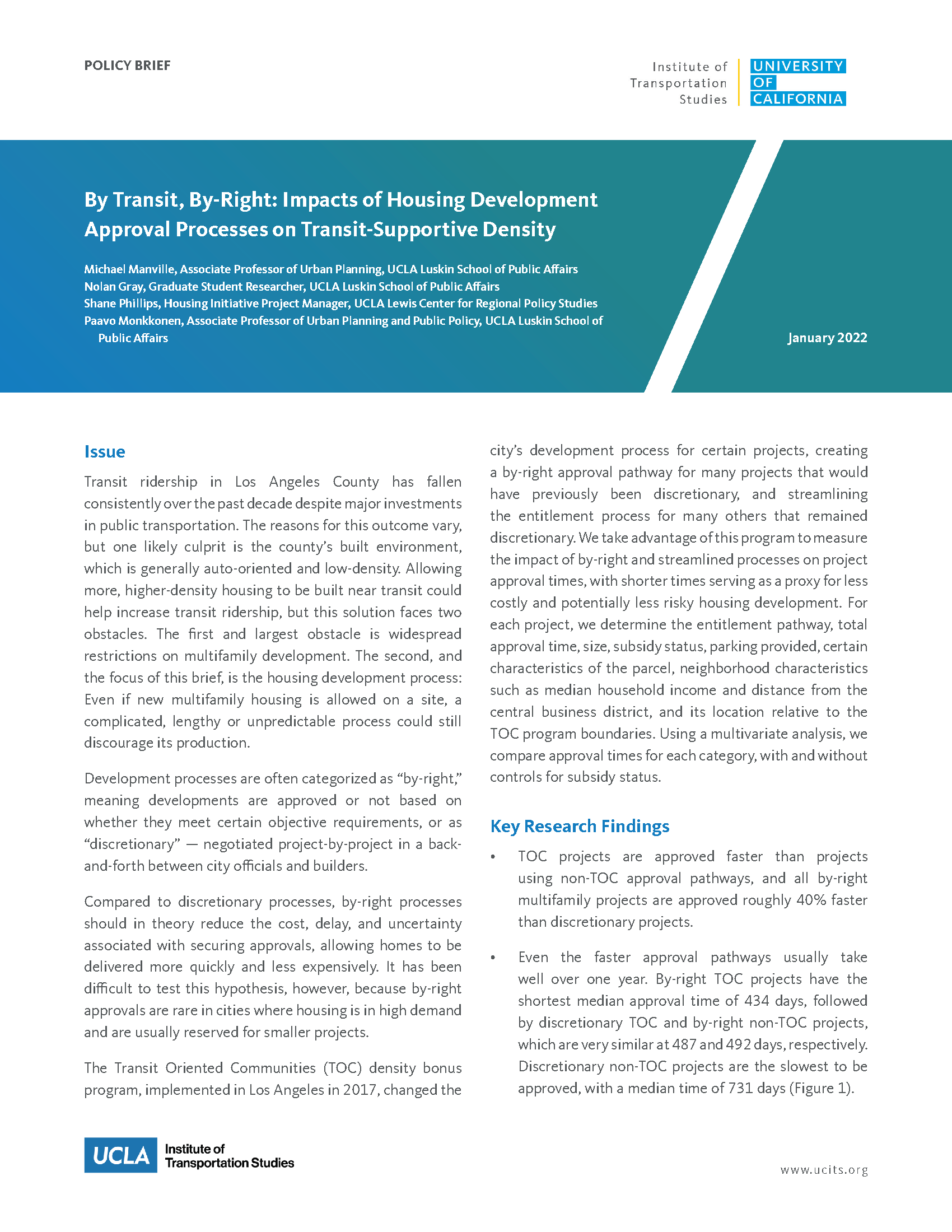Project ID:
LA2009Year Completed:
2022Funding Source:
Statewide Transportation Research ProgramProject Description
Los Angeles County has spent tens of billions of dollars to build over 100 miles of rail transit, but today per capita transit ridership is 40 percent lower than before rail construction began. One reason for this startling failure is that LA remains overwhelmingly laid out for the automobile: it is a low-density, parking-heavy landscape where the built environment is not conducive to transit use.
This causes two problems. First, it implies a low supply of housing overall, leading to high prices that burden the lower-income residents most likely to ride transit. Second, low density implies fewer homes near transit for people of all incomes, meaning fewer people living where they could plausibly drive less and use transit more (Boarnet et al., 2017).
An important obstacle to a higher-density, transit-friendly future may be discretionary approval. Scholars argue that discretionary approval — where development permission is negotiated project-by-project — can exacerbate high housing costs by delaying projects and creating uncertainty. By-right approvals are viewed as a potential solution (Reid and Raetz, 2018), but a rigorous evidence base for this assertion is missing, because few cities permit a significant number of similar discretionary and by-right projects, so valid comparisons are lacking.
Publications

Paavo Monkkonen (PI)
paavo@luskin.ucla.edu
Research Team
Program Area(s):



